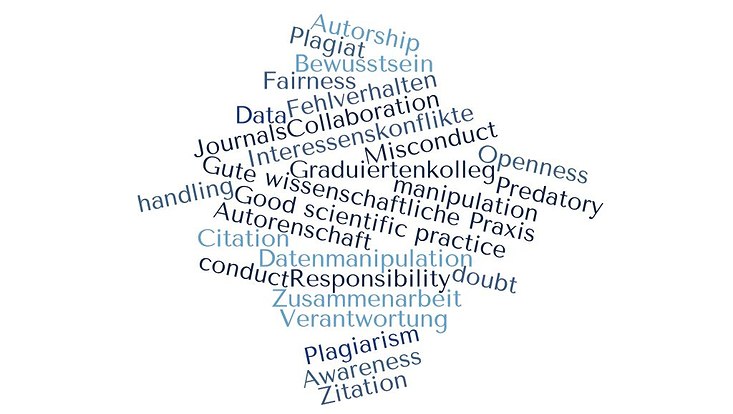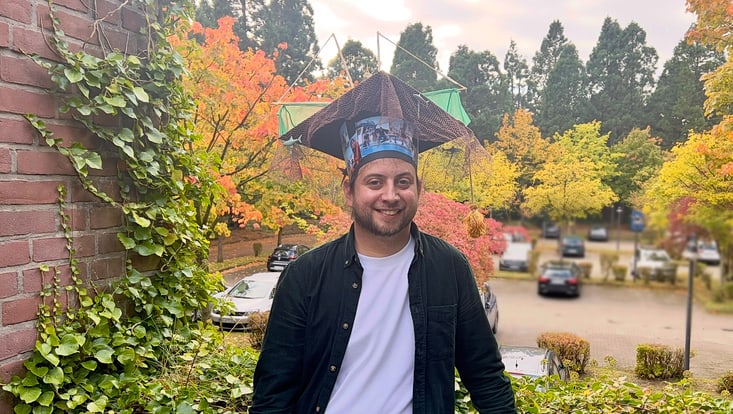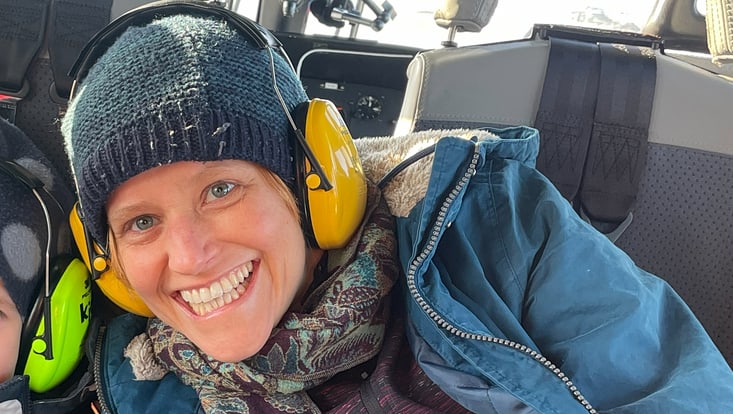“I’m more critical with my work”
19 May 2021, by RTG2530

Photo: UHH/GRK2530
Good scientific practice is a core element of science. Therefore, the RTG2530 offers a good scientific practice course as part of its qualification programme, which took place at the end of April. The doctoral researchers Monica Wilson and Friederike Neiske from our RTG talk about, what they took from the course, their own experiences with good scientific practice, and which advice they would give younger students.
Monica and Friederike, what experience did you have regarding the topic of good scientific practice before you took the course?
Monica: For me, good scientific practice was mostly the scientific introduction that you get when you join and work in a lab. Some of the points were how to properly keep a lab book and things like that. But I have never been instructed directly on how you should collaborate with others or publish or anything like that. Everything that I knew previous to the course was mostly second hand or informal conversations with professors that talked about the things that you should be aware of.
Friederike: I also had an introduction to lab work but nothing more, no courses. All the information that I had were just by chatting with colleagues or with my supervisor during my masters thesis, so it was nothing official.
Both of you didn’t have a course or a proper introduction on good scientific practice. Do you think most Bachelor and Master students have the same experience?
Monica: Probably yes. And I can say that for me personally, I didn’t know how to do good scientific practice. During the course, when anybody said “This is how you should not do it”, I was often thinking “I have an exact memory of me doing this in my Bachelors” because until afterwards no one told me. And you can argue that I should have been told that. So I think the earlier this topic is raised the better. I think it’s a shame that this is the first time that I had a course dedicated to explaining explicitly what is expected of me and what I should expect from other people without me having to learn the hard way from own experience.
Friederike: Yes, I totally agree.
What topics did you talk about in the course?
Friederike: We started with data handling and talked about the responsibilities of the supervisor and the supervised. We continued with predatory journals, conflicts of interests and scientific cooperation. That was also the topic Monica, Elly and me presented.
All the Doctoral Researchers presented the topics themselves. Why did you choose to present conflicts of interest and scientific cooperation?
Friederike: (laughing) It was a mistake. We had to sign in at a poll and I asked Monica if she has any preference and she said ‘Maybe not the last one’ and I understood ‘Please the last one’. So there is no specific reason why we chose this, but in the end it was a really interesting topic.
Monica, why didn’t you want to present this topic?
Monica: I was thinking about the format of the course - we wanted to make it entertaining, interactive and be creative in the way we present the topic to our fellow doctoral researchers. I thought conflicts of interests would be hard to present in a fun way. But in the end I was super happy the way we did it.
So how did you present the topic?
Monica: We started with examples of positive scientific cooperation, then we went into negative ones. We asked everyone in the group to write down types of conflicts of interests that they thought would be the most pervasive. Then we ended with breakout room discussions with different scenarios. We didn’t have set answers or anything prepared so people had to develop their own solutions.
What key messages have you taken away from the course?
Friederike: For me it was that bad scientific practice in all it’s shapes is not that obvious all the time. For example when someone is manipulating the data you can’t always see it, it’s not that obvious. Or when we talked about the predatory journals: In the beginning I thought it’s very obvious, it’s not professional and no one will go for it. But it sometimes is hard to spot.
Monica: I would agree. One of my biggest take away was how insidious bad scientific practice is. I think one of the reasons for that is, that it’s not always malicious intent - sometimes it’s carelessness or ignorance. Or, in my case as bachelor student, it’s not knowing how to properly keep my lab notebook. It wasn’t because I wanted to actually intendedly hide my data. It was just because I didn’t know. And I think a low level of awareness what good scientific practice is leads to bad scientific practice. And so it’s much more pervasive than I thought. People often gave statistics on how frequently it happens for many of the different topics and it’s much more then you would think.
Can you remember how often it happens?
Monica: A survey from 2015 by the American Society for Cell Biology found that more than two-thirds of respondents had been unable to reproduce published results at least once. That is definitely not just bachelor students publishing things but all levels of science.
Has the course made you more aware to spot bad scientific practice? For example when looking at figures or papers?
Monica: The next day after the course ended, I was reading a paper and I was reading it with much more scrutiny then I would normally have. I was like: ‘I don’t know, maybe these people are hiding something’ (laughs). I don’t know if it was intended by the course but it definitely made me more suspicious of taking things at placed value, even when it’s published in a journal with high impact factor.
Friederike: I’m also more critical with my own work. We talked about data for example: When you have your data and start with the analysis or interpretation, you are biased by your expectation. And you are also in some kind of bubble, you interpret your data in a certain way. It’s not always neutral because you want your data to show certain things.
Do you have a solution for that problem?
Friederike: Already being aware that you might be biased can help, but I think one solution could also be to talk about my data with colleagues. Maybe with people that are not directly working with me, people from another working group. I think that this is really nice in our RTG: We have a lot of people that we can ask for help and discuss our data with.
What kind of measures do you apply now to ensure good scientific practice, Monica?
Monica: I have already started thinking about the robustness of my data. When we were talking about data handling, one part was how to avoid trying to extract more significance out of your data then there is. This can be solved by having a good experimental design at the beginning. So the number of replicates and the sample sizes. So I’ve been spending a lot of time thinking about how to gather enough data but not too much.
Looking back, what would your advice be for younger students now that you had the course?
Monica: It so important that you make sure you communicate with whoever is supervising you from the beginning very directly and make your expectations from your scientific partners clear.
Friederike: I would add to that to be critical with the work of others but also with your own work and constantly reflect on what you are doing.
About the people:
Friederike Neiske studied in Tübingen and Göttingen before coming to Universität Hamburg. She is working on the question of how soil conditions affect the carbon dynamics and the mobilization of dissolved organic matter in the marshes of the Elbe estuary.
Monica Wilson's PhD research focuses on rhizosphere processes in wetlands and plant-mediated degradation of organic matter in the rhizosphere (e.g. through root oxygen loss and root exudates). She did her Bachelor's degree at Smith College in Massachusetts and her Master's degree in Cologne.


